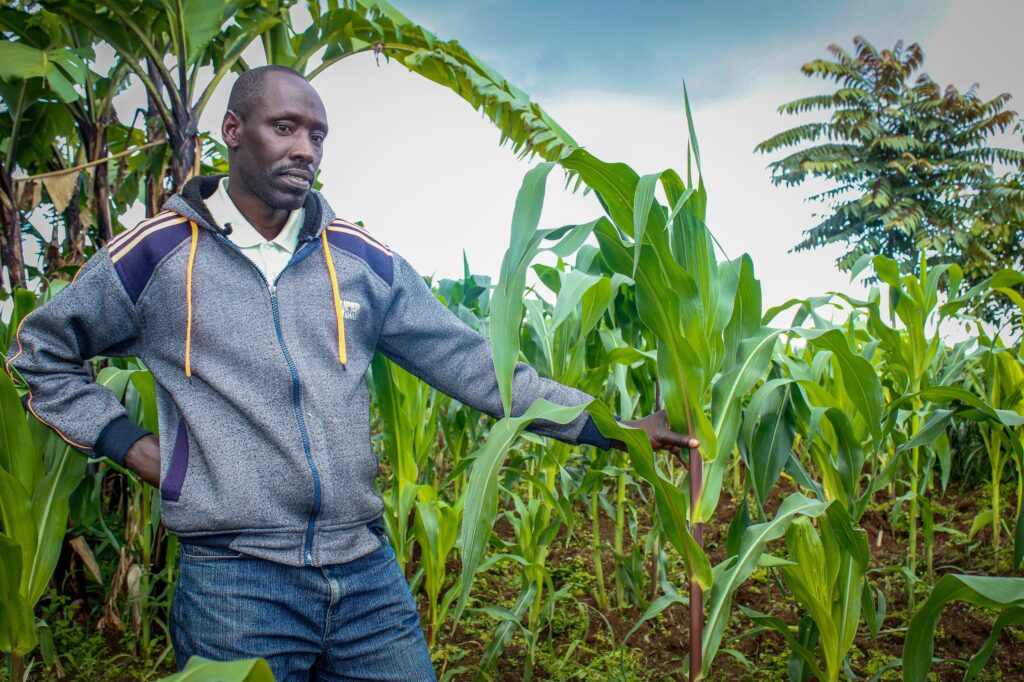An innovative project of Cordaid in Burundi promotes rural financial inclusion in the southern province of Bururi. The collaboration with a microfinance institute enables farmers without access to credit to grow their businesses and opens up opportunities for everyone in the area.

The cooperative, Tugire Ubumwe N’iterambere, represents the interests of corn and potato farmers in the region. In recent years, production and sales have started to drop significantly, threatening the livelihoods of the 156 members, of whom 112 are women. Cordaid teamed up with Receca Inkingi, a local microfinance institute, to prevent the cooperative from collapsing.
Burundian farmers often lack bank accounts or access to loans to upscale their businesses. Some banks are willing to support agribusinesses but do not have a network among rural farmers. Microfinance institutes can find these networks through Cordaid.
Moral guarantees
Another crucial player in the project is the Anglican Church of Mutangaro. In addition to making 6 hectares of land available, the church supports farmers who want to enter the cooperative and access credit with moral guarantees. The head of the church countersigns the cooperative’s credit application and approves each new member.
PADFIR is the French acronym for Project to Support the Development of Innovative Rural Finance. With the project’s support, the Receca Inkingi staff could conduct field visits and assess business opportunities. Today, the cooperative has become an important source of support and inspiration for its members and many farmers and their families in the community.
“I am currently harvesting 1.5 tonnes in the same area where I used to only harvest 200 kilos.”
Encouraging results
Famers like Fulgence Ntakarutimana. His father had left him over 5 hectares of land, and Fulgence was eager to start a farming business.
Unfortunately, like many Burundian farmers, he could not access the necessary credit to invest in seeds and tools. He was also worried that he would lack essential knowledge about the specifics of the terrain to make the enterprise a success.
By joining the cooperative, Fulgence learned everything he needed about growing and selling corn. He established valuable business relationships and efficiently managed the funds he received from the finance institute.
“I was trained to effectively plant seeds and put all kinds of techniques into practice”, Fulgence says. “The cooperative also helped me access credit to purchase good-quality agricultural inputs. The results are encouraging. I am currently harvesting 1.5 tonnes in the same area where I used only to harvest 200 kilos.”

Seed multiplication
Fulgence’s next ambition is to start seed multiplication, the process of increasing the number of seeds for a particular crop through breeding and propagation techniques. Since its relaunch in 2022, the cooperative has made remarkable progress and has become renowned in the region for seed multiplication, recognised by the ONCCS (National Seed Control and Certification Office).
Fulgence: “Since there is no longer a barrier to accessing agricultural financing, I can become a seed multiplier. This is my vision, and I know I will get there.”